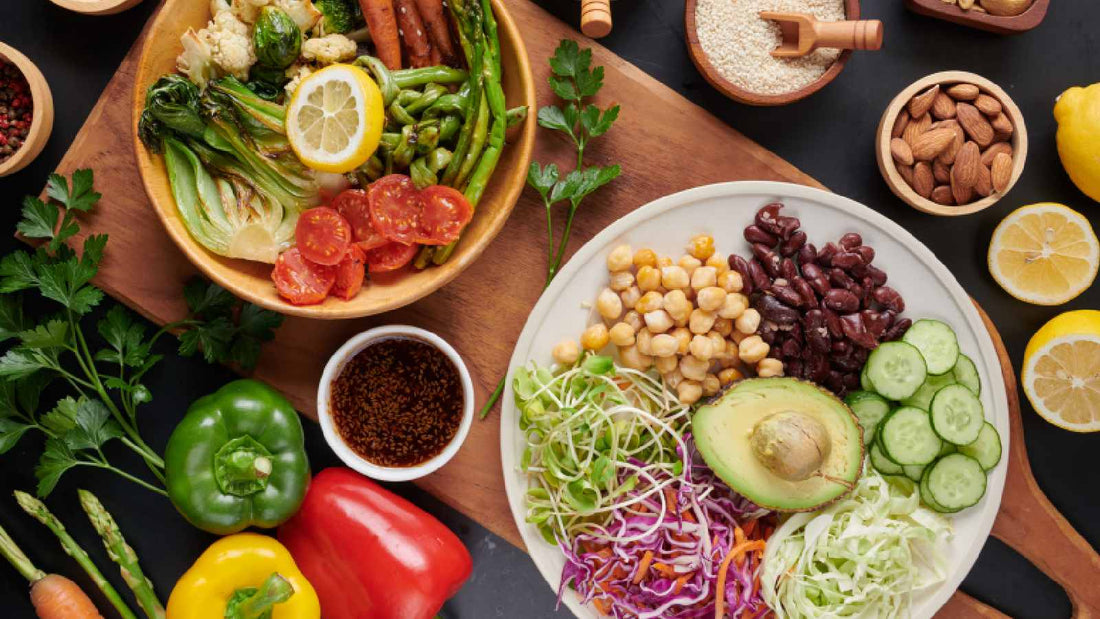
The Importance of a Balanced Diet for Hair Health
Hair is often seen as a reflection of one’s overall health, and it thrives on the nutrients your body receives. While hair care products and treatments can help externally, a balanced diet plays a fundamental role in promoting strong, shiny, and resilient hair from the inside out. This article explores the connection between nutrition and hair health, highlighting the key nutrients that keep your locks looking their best.
How Does Diet Affect Hair Health?
Hair follicles, like other parts of your body, require a steady supply of nutrients to function optimally. A poor diet can lead to weak, brittle, or thinning hair, while a nutrient-rich diet supports hair strength, texture, and growth. Key factors include.
1. Protein: Hair is primarily composed of keratin, a protein. Insufficient protein can lead to slower hair growth or even hair loss.
2. Vitamins and Minerals: These micronutrients help in forming strong hair follicles, preventing oxidative damage, and maintaining scalp health.
3. Hydration: Proper hydration ensures that hair strands remain supple and less prone to breakage.
Key Nutrients for Hair Health
1. Protein: The Building Block of Hair
- Importance: Hair is made of keratin, a protein. Without enough dietary protein, hair may become weak or stop growing.
- Sources: Beans, lentils, chickpeas, tofu, tempeh, quinoa, edamame, nuts (like almonds, walnuts), seeds (like chia, flaxseeds, pumpkin seeds).
2. Biotin (Vitamin B7): The Growth Booster
- Importance: Biotin improves keratin production, promoting hair thickness and growth.
- Sources: Almonds, walnuts, sunflower seeds, sweet potatoes, spinach, broccoli, and whole grains like oats and barley.
3. Omega-3 Fatty Acids: For Shiny, Lustrous Hair
- Importance: These healthy fats nourish hair follicles and promote a hydrated scalp, reducing dryness and inflammation.
- Sources: Flaxseeds, chia seeds, hemp seeds, walnuts, and algae-based omega-3 supplements.
4. Iron: Prevents Hair Thinning
- Importance: Iron carries oxygen to hair follicles. A deficiency can lead to anemia, which is linked to hair loss.
- Sources: Spinach, lentils, chickpeas, tofu, edamame, fortified cereals, pumpkin seeds, and quinoa.
5. Vitamin C: Boosts Collagen and Absorption
- Importance: Essential for collagen production, which strengthens hair shafts. It also aids in iron absorption.
- Sources: Citrus fruits (like oranges and lemons), strawberries, kiwis, guavas, bell peppers, broccoli, and tomatoes.
6. Zinc: Prevents Hair Loss
- Importance: Zinc supports follicle repair and oil gland function, keeping the scalp healthy.
- Sources: Pumpkin seeds, sunflower seeds, chickpeas, cashews, lentils, and fortified plant-based foods.
7. Vitamin E: Protects Against Damage
- Importance: Vitamin E is an antioxidant that reduces oxidative stress, which can weaken hair follicles.
- Sources: Almonds, sunflower seeds, peanuts, avocados, and spinach.
8. Vitamin D: Reduces Hair Loss
- Importance: Vitamin D deficiencies have been linked to alopecia and hair thinning.
- Sources: Fortified plant-based milks (like almond, soy, or oat milk), fortified orange juice, mushrooms exposed to sunlight, and limited sun exposure.
Signs of Poor Nutrition in Hair
- Dry, Brittle Hair: Lack of healthy fats or protein.
- Hair Thinning: Low iron, zinc, or vitamin D levels.
- Scalp Issues: Flakiness and dryness due to omega-3 or biotin deficiencies.
- Slow Growth: Inadequate overall nutrient intake.
How to Build a Hair-Healthy Diet
1. Prioritize Whole Foods
Focus on unprocessed, nutrient-dense foods, including lean proteins, whole grains, and fresh produce.
2. Stay Hydrated
Drink plenty of water to maintain hair elasticity and reduce breakage.
3. Avoid Crash Diets
Sudden calorie restriction can lead to hair shedding, as the body diverts nutrients away from non-essential processes like hair growth.
4. Supplement Wisely
If you’re unable to get enough nutrients from your diet, consult a doctor about supplements like biotin, zinc, or iron.
Diet and Hair Types: Tailoring Nutrition
- Curly Hair: Often prone to dryness, so prioritize omega-3 fatty acids and vitamin E.
- Fine Hair: Needs iron and protein for strength and volume.
- Color-Treated Hair: Antioxidants like vitamins C and E help repair damage caused by dyes.
Frequently Asked Questions
1. Can diet reverse hair loss?
While diet alone may not reverse genetic or medical-related hair loss, it can prevent further damage and promote new growth if deficiencies are addressed.
2. Are supplements necessary for hair health?
Supplements can be helpful if your diet lacks specific nutrients, but getting nutrients from food is preferable.
3. How long does it take to see results from a healthy diet?
Hair grows about half an inch per month, so visible improvements may take 3–6 months of consistent nutrition.
4. Does hydration affect hair?
Yes, dehydration can make hair dry and brittle. Drink sufficient water daily.
5. Can a vegetarian or vegan diet support hair health?
Absolutely! With proper planning, plant-based diets can provide all the necessary nutrients through foods like lentils, nuts, seeds, tofu, and fortified products.
Conclusion
A balanced diet is fundamental for vibrant, healthy hair. By nourishing your body with the right nutrients, you’re not just enhancing your locks—you’re supporting overall well-being. Combine a nutrient-rich diet with a good hair care routine to enjoy stronger, shinier, and healthier hair for years to come.
